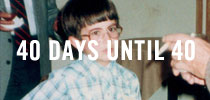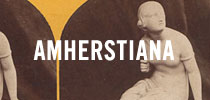
After having pumped my tires on Thursday, cleaned the bike on Friday, and purchased a new lock cable on Saturday, I rode to jury duty for the first time – rode my bike, period, for the first time in a long time. The commute was not bad at all, just 20 minutes, much of it along streets with bike lanes. My bike needs a tune-up, but otherwise, things were fine. Besides keeping my car off the road and giving me a bit of warm-up for another potential Muddy Buddy shot this year, riding the bike gives me more time to venture further out for lunch. Today, I headed a little further down the Ocean Front Walk and parked under a tree next to some people practicing some intense-looking, people-throwing gymnastics routines.
The Crab with the Golden Claws is an important book in the Tintin canon if only because it introduces Captain Haddock, Tintin’s right-hand man throughout the rest of the series. It’s also an entertaining story with a few notable elements, in a well-thumbed 1970s edition we cherished as kids.
For someone who becomes a mainstay character, Haddock has a pretty rough start in this book. He’s a drunk, unreliable and crazed, with no sense of the right thing to do, and the cause of a capsizing, an airplane crash, and a number of other avoidable mishaps. It’s an inauspicious beginning for someone who becomes a steady, if often disgruntled, friend for life.
Throughout the books I’ve re-read so far, I’ve noticed a few Britishisms that must have confused me as a child, like this one, from the villain Allan: “We must settle his hash.” Huh?
The most interesting artistic element of the story are the four full-page panels, unprecedented in the series, that punctuate the story, uncaptioned and standing alone. The creation of the story was interrupted by paper shortages during World War II, and was completely redrawn in 1943, as well as undergoing some changes at the request of American publishers. In addition to these full page images, the empty and spare desert landscapes are beautifully rendered, and have an almost proto-Lawrence of Arabia widescreen feel to them.
This book also takes the cake so far for most nonsensical line of dialogue, as Tintin makes a big stretch to keep the plot going. He’s searching for a secret passageway among a room of giant casks, and says to Snowy, “As for me, Snowy, I’m like old Diogenes, seeking a man!” He goes on to connect Diogenes living in a barrel with the thought that the barrel may be acting as a secret passageway, but the line sticks out like a sore thumb.





















